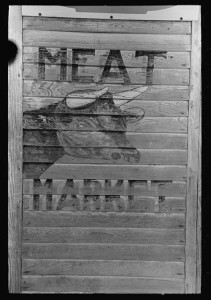From The New-York Times January 10, 1864:
Ladies’ National Army Relief Association.
WASHINGTON, Thursday, Jan. 7, 1864.
To the Editor of the New-York Times:
Thankful for your courtesy in publishing my letter in your issue of the 3d, I desire to correct an error which causes me to say the opposite of what is true, viz.: That nurses do not desire pay outside of general hospitals. Desire should read receive.
To secure experience and permanence of service, the nurses should and must be paid and protected. All can understand that.
Our “Announcement” is out and the “Circular” will immediately follow.
Strong sympathy with our cause is everywhere met, and now as we enter the field to remove the last difficulty before us, (the want of means,) I feel assured this will disappear as have far more formidable ones that have melted, or are rapidly melting, away.
The noblest and best are ready to enter the field the moment we can receive them, and wasting lives implore the relief and saving care.
Women have an interest in the great Army of the Union. It encircles their most precious treasures, and military lines are loosing their severe rigidity quite [???] and what was early in the war an intrusion surrounded with great prejudice is now hailed with thankfulness whenever properly understood. SARAH P. EDSON.
P.S. — Communications can be addressed or interviews had at No. 713 Broadway, Room No. 20, until the 20th of January.
Here’s the original letter from The New-York Times January 3, 1864:
Nurses in the Army.
To the Editor of the New York Times:
My attention was arrested by an editorial in your issue of Sunday, the 13th inst., concerning “Nurses in the Army.” I was particularly struck with the clearness and justness of the whole article. I wish it might be read in every household in the land, and especially by our representatives, whose duty it is to protect the people, and lessen, as far as possible, all reasonable causes for complaint, and, more especially, to use all necessary means to relieve the sufferings of our noble and patriotic soldiers in the battle columns of our army.
Are they not the surrendered treasures of almost every Northern household? Are they not men whose lives are, if possible, more precious than before to the hearts of those who love them, and whose prayers ascend continually that they may be held in the hand of Him whose great cause they have gone forth to maintain and establish, even, if need be, to the giving up of life?
The great one body — the army — seems to lose all thought of the atoms of which it is composed. The man is but the thousandth part of a regiment, and totally swallowed up in the great army of the Union; but yet, in his own individuality, he is the loving and loved of the circle at home. Men seem almost to forget this in the great congregation of armed men, but whether it be so with us or not can be decided by the efforts we make to reach and save individual life.
Service in the army, from its commencement, in every variety, from the general hospital to the lengthened campaign and the great battle-fields, has given an education in the needs of our soldiers, and their sufferings and death, that must almost all remain in the hearts of those who witnessed them, for they cannot be uttered.
You speak of the defects of the ambulance and nurse system, or rather the utter lack of system or organization necessary to success.
None can realize how sadly, terribly true are these remarks but they who have seen the workings of disorganization on the field, especially the female assistance and care.
You speak of an association of ladies last Summer, dating from Washington, having in view the systematizing of this branch of field relief, but do not know whether anything has been accomplished, or whether they are now at work.
We are, most earnestly.
You say “if there are difficulties in the way of their success, they should at once be removed.”
Almost appalling difficulties have been met and evercome, advantages sought and obtained. We (nurses in the field) are now permitted to go and remain wherever surgeons desire our assistance, and that is everywhere where are sufferings in the army.
Permit me here to correct one error in statement. Nurses do not desire pay outside of general hospitals, nor are they entitled to rations, but they sometimes receive their food while at work, but frequently are obliged to support themselves. These we propose to support and pay, so that we may secure permanent service and the wealth of experience where it is so much needed.
The Secretary of War is desirous of doing, and has now done all that he, as a Government officer, can do, until legislation shall extend his powers, or create powers elsewhere to regulate and control the whole matter.
The only difficulty now remaining is the comparatively small means necessary to carry on our work.
Our “Circular” (The Ladies’ National Army Relief Association) will be given to the public in a few days, and we earnestly hope such responses will be given as will place us at once in the field with the thousand-fold advantages of organization, experience, responsibility and skill, as against the losses and embarrassments attending the lack of all these.
Commanding and medical officers of every grade are ready to welcome our members to the field, for we propose to relieve them of the serious embarrassments of caring for us in emergencies, by taking under our care all nurses when the army moves.
The law gives no protection for female nurses in this department.
We will look after the sick who are left behind, and hold all nurses so near, that they can at once be at the post of duty when needed.
All the duties or necessities in this our chosen field of labor, cannot be hinted at in this article, nor the earnest calls that bid us enter, nor the blessings, nor the expressions of gratitude, nor the tears of thankfulness that have traced the tanned and bearded cheeks of brave men, that have followed the crippled and imperfect services of volunteer labor.
Our “Circular” will tell some of these.
We do not now despair after fourteen months untiring effort and determination to bear down the difficulties that prevented a proper answer to the calls of a hundred thousand suffering men, who need our experience and care.
By the help of the people we will in a few days become a band of “recruiting officers” that will give back to the ranks a drilled man, and instead of making another home lonely, we will save homes and hearts from sorrow and mourning.
Will the people send us to recruit in this pleasant manner?
Our commissions will cost only our support while on duty.
Severe trials of health await the new soldiers about to be sent out. Time is of golden value in providing experienced care.
Shall we be supported? — the last difficulty now before us. [???] SARAH P. EDSON.
President Ladies’ National Army Relief Association.
Sarah P. Edson was born up here in the Finger Lakes region, in Fleming, Cayuga County.

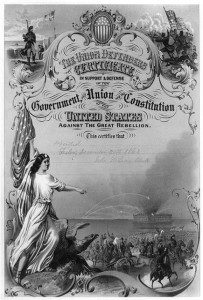
![[Civil War envelope showing Patriot labeled "Secured" holding the Constitution and Zouave soldier labeled "Defended," with message "The Union forever"] (Cin[cinnati] : Jas. Gates Pub., [1861]; LOC: LC-DIG-ppmsca-34721)](https://www.bluegrayreview.com/wp-content/uploads/2014/01/34721r-300x175.jpg)
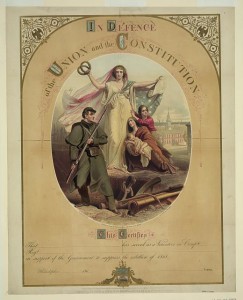
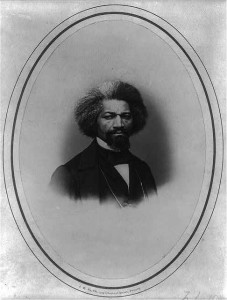
![Prominent candidates for the Democratic nomination at Charleston, S.C. [Composite of bust portraits of Stephens, Orr, Davis, Guthrie, Slidell, Pierce, J. Lane, Hunter, Breckenridge, Douglas, and Houston] (1860; LOC: LC-USZ62-79475)](https://www.bluegrayreview.com/wp-content/uploads/2014/01/3b26522r-300x221.jpg)
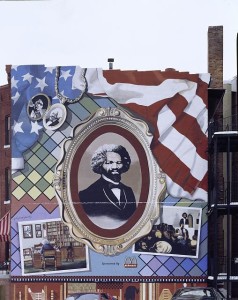
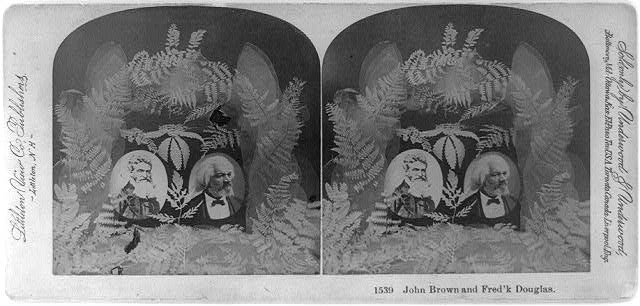
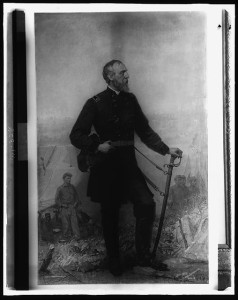
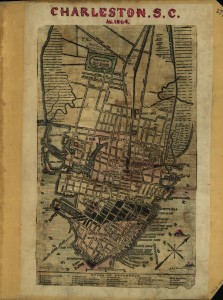
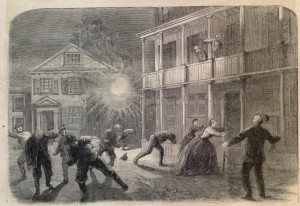
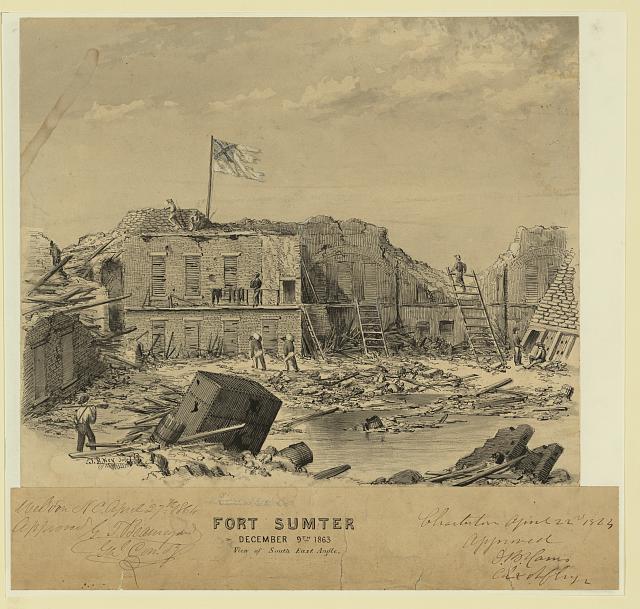
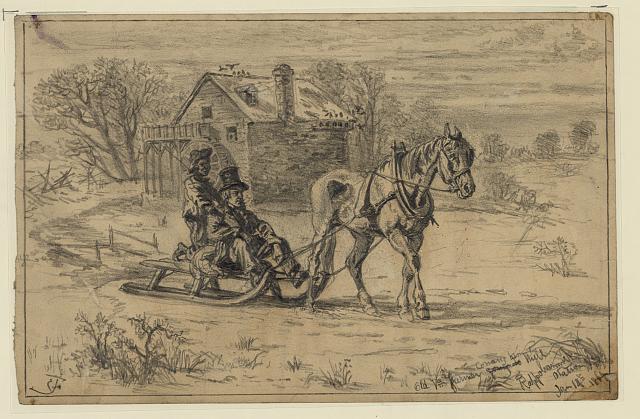
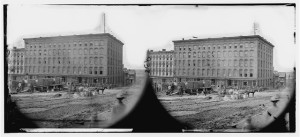

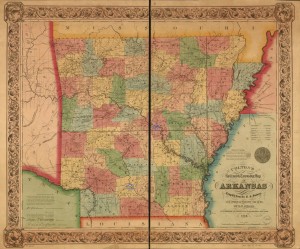
![Civil War camp scene, showing company kitchen, 1863(?) ( photographed 1864, [printed later]; LOC: LC-DIG-ppmsca-33113)](https://www.bluegrayreview.com/wp-content/uploads/2014/01/33113r.jpg)
